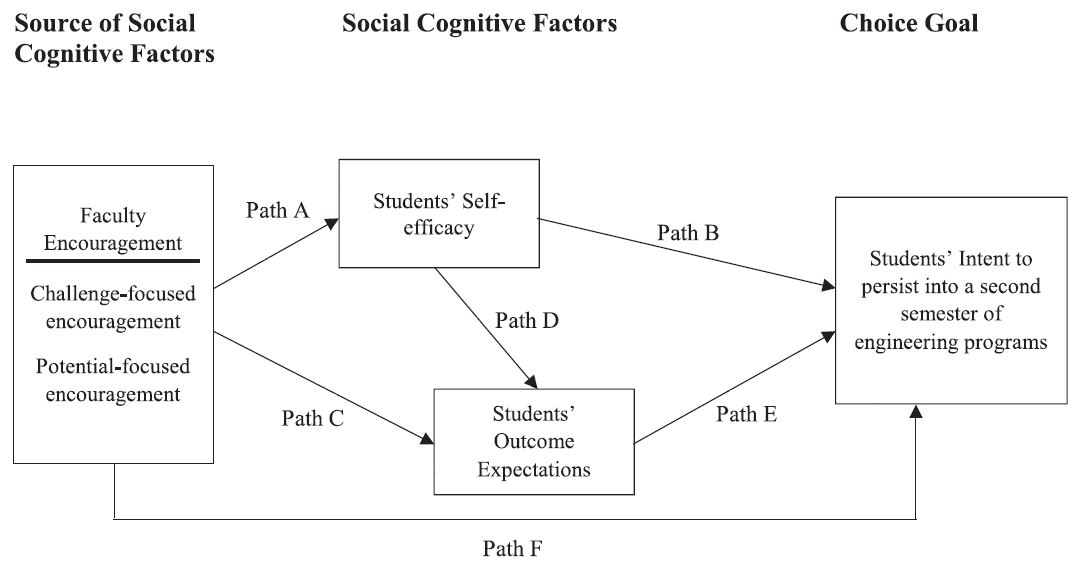Exploring the relationship between student-perceived faculty encouragement, self-efficacy, and intent to persist in engineering programs
Copious research on Social Cognitive Career Theory has found student self–efficacy substantially related to persistence in engineering programs. The present exploratory study investigated the associations among faculty encouragement (a specific type of verbal persuasion in college context) and students’ self–efficacy, outcome expectations, and intent to persist in engineering majors using a sample of first-semester engineering students at a mid-sized public university. Analytical data were collected from 205 first-year engineering students in the fall semester at a mid-sized public four-year university in the United States. Results show that students’ perception of faculty encouragement can statistically significantly contribute to students’ self–efficacy and outcome expectations, supporting the hypothesis that student–perceived faculty encouragement was a source of self–efficacy and outcome expectations. Further, although students’ perception of faculty encouragement can influence students’ intent to persist, the effect was not directly transmitted; rather, it was found only through an indirect path via self–efficacy.

